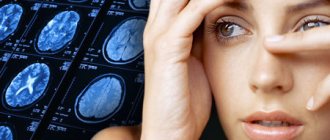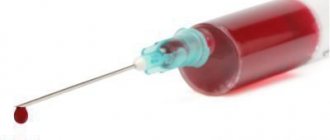How does trypanophobia manifest?
A person suffering from trypanophobia experiences a strong fear of any medical procedure associated with the need for injections or laboratory blood tests. The person does not consent to the injection of drugs and refuses to seek medical help.
Experts identify four main forms of the disorder, each of which has its own symptoms:
- vasovagal;
- associative;
- resistive;
- hyperalgesic.
Fear of injections in children. How to help a child who is afraid of injections
Fear of needles is common among children. Kids do not yet realize that injections are given to make them healthier, so for them a syringe needle only means pain.
If you have a child like this and are about to get a vaccination, blood test, or injection treatment, consider the following recommendations and your trips to the doctor will be much less stressful
Don't joke about injections
Forget about playful remarks and especially seriously spoken threats about the fact that the child will be given an injection for his bad behavior. Children must understand that any injection is given for their benefit, and not to hurt.
Fear of needles is serious
Take it for granted that your child is afraid of injections. Support him every time he is scared
Before the injection, warn the nurse about your baby's psychological state and ask them to pay special attention to this fact. Be a protector for your child, because this is exactly what he expects from you!
Breathe deeper
Hold your baby tightly in your arms while breathing deeply and evenly. The feeling of your calm breathing will give him confidence.
Use any methods that will help distract the child from the frightening expectation: distract him with toys, sing his favorite song, remember a pleasant event, or switch his attention to another expectation - a more pleasant one. The traditional reward in the form of a chocolate bar usually works only the first time; a child who is “experienced” in the matter of injections needs more serious motivation: for example, a trip to the cinema or the zoo, a ride on a real train, a gift from Santa Claus for the New Year and other events that evoke vivid emotions
Use medications
The use of sedatives is justified in extreme cases, when the fear of an injection is so great that it is not possible to give an injection or take a blood test. Both medications taken orally and creams and sprays with a “freezing” effect may be suitable. Remember: any medicine you give your child should be prescribed by a pediatrician, not a pharmacist at a pharmacy.
Cough trick
This interesting method allows you to reduce the pain from the injection! Ask the nurse to cough lightly during the procedure. The moment she coughs for the second time, you need to give an injection. Observations of foreign pediatricians and nurses and even studies confirm that the intensity of pain with such a trick is noticeably reduced.
How does the associative form of trypanophobia manifest itself?
Associative form (occurs as a result of intimidation of parents, demonstration by parents or other people of fear of injections, as well as due to childhood memories that it was once very scary or painful after an injection).
“All evil comes from the Internet.” The most unusual phobias of the 21st century Read more
In the associative form, the following symptoms occur:
- insomnia;
- panic attacks;
- prolonged background anxiety and concern about the upcoming procedure.
Ways to fight for children
Any psychological diseases that develop from childhood begin to appear in adulthood as a consequence of psychological trauma. Doctors advise working with children at the first stage of the appearance of fear. It is easier to work with a baby because he has a fragile psychological barrier. Design methods show excellent results. Trusting relationships can be established through reading fairy tales. Emotive imagination makes it possible, in the form of a game, to get used to the object of fear.
The child associates himself with his favorite character and begins to work out the situations in which his hero finds himself. After a while, the baby comes to terms with the idea of injections, and no longer feels afraid at the sight of a syringe.
Where does the fear of vaccines/injections come from?
Each form of psychological disorder has its own causes.
The vasovagal form is genetically determined and inherited. 80% of people with this form of trypanophobia have close relatives suffering from this disorder. There is a hypothesis that people have developed the ability to faint at the sight of arrows, knives, spearheads, as well as blood (usually someone else's). Losing consciousness and lying motionless on the battlefield helped to survive when meeting the enemy, and the genes of those who survived battles were passed on to their offspring in this way.
The resistant form is associated not so much with the fear of an injection, but with the fear of being helpless and immobilized during the process of medical intervention. The disorder develops against the background of one’s own (usually childhood) negative experience of injections. From childhood, a person can remember how they roughly held his arms and legs, covered his mouth, etc. The stress he experienced at one time leads to the emergence of a panicky fear of an injection.
The associative form of the disorder can arise as a result of a traumatic experience, for example, a child saw a sick relative get an injection, and after some time this person died. The traumatic event causes the patient to associate all needle procedures with the initial negative experience.
The hyperalgesic form is associated with an excessively low pain threshold. A person may actually experience severe pain from the injection. This form of the disease is quite rare (less than 10% of all cases).
“He wants to kill me!” Why are some people afraid of clowns Read more
Reasons for appearance
The phenomenon of the prevalence of fear of injections and phobia, whose name is trypanophobia, is as follows: the insensitive attitude of medical staff towards their patients, poor level of medical care, side effects after the manipulations.
In reality, the situation with trypanophobia is much more complicated. Doctors have identified three main groups of causes leading to this disease:
- Social factors. This includes the inattention and incompetence of nurses and doctors, and the neglect of certain medical staff towards sanitary standards. They cause fear of infection through an unsterile instrument.
- Bad experiences may contribute to the emergence of a phobia. A carelessly administered injection or an ineptly placed IV will further provoke the development of a phobia. Fear also most likely appears in people who are unlucky enough to have the injection performed by a trainee who did not hit the vein in one shot.
- Psychological factors of the disease are also very common. The fear of injections appears in childhood, and the subsequent negative reaction is consolidated in the child’s subconscious, and reinforced by experience of painful manipulation with further bruises and inflammation, it leads to the development of an anxious phobic disorder.
The impetus for the appearance of irrational fear can be a seemingly harmless injection in a cartoon, where the hero is punished in this way. Visiting clinics where the baby hears crying or observes other frightened children also has a certain impact.
There are also hereditary causes. Certain doctors assure that the fear of injections is in the subconscious, so people cannot control their fears. Psychologists say that the injection begins to cause an association with damage from insect and snake bites. The fear of blood also begins to lead to the appearance of a phobia.
Trypanophobes are often patients with type 1 diabetes. Regular insulin injections in certain situations begin to lead to fear from just looking at the syringe.
How can you overcome trypanophobia?
Anyone who can analyze their emotions can help themselves. The human body is programmed to independently solve internal problems. Self-help can be expressed in not watching how the nurse draws the medicine into the syringe, turning away at the moment of the injection, distracting yourself with music. You can also try to move the pain center, for example, pinching yourself. In the hyperalgesic form, pain and discomfort can be eliminated with the help of local anesthetics - agents applied to the skin.
Key scares
It is common for every person to be wary of objects that can cause pain. Psychologists examined phobia-dependent people and identified the main cases that cause anxiety in patients.
Taking into account the data obtained, the following types of fear were identified:
- The presence of air bubbles in the syringe, which, if they enter a vein, can lead to significant complications and even death.
- The moment of performing the injection is scary because the needle can be dull and it will hurt during the manipulation.
- Failure to maintain sterility can cause an inflammatory process, which in turn will develop into an abscess and require surgical intervention.
- Insertion of a needle may result in the appearance of a bruise, bump, or hematoma at the injection site.
- When performing an injection, you can become infected with tuberculosis or AIDS.
- Injections provoke cancer.
- The needle may break and remain in the body.
These myths can cause significant harm to health, since quite often during blood poisoning or a heart attack it is simply impossible to do without IVs or injections. All the fears of people who suffer from a fear of needles and injections are due to a normal reluctance to feel pain, but most often this does not make common sense.
Is it possible to get rid of trypanophobia as an adult?
In a mild form, this disorder can be cured on your own, without resorting to the help of professional psychologists or using antidepressants.
Drug treatment of trypanophobia comes down to taking mild sedatives and herbal remedies.
If the disorder is severe, when reactions such as panic attacks, hysterics, etc. appear, you can cope with fear under the guidance of a psychologist. The specialist will analyze the methods of self-regulation that have already been mastered, and will also suggest rational reactions.
Relaxing massage, yoga, martial arts, etc. can also help get rid of trypanophobia.
Biorevitalization
The term “biorevitalization” was proposed by the Italian scientist A. Di Pietro in 2001. If we literally translate this term into Russian, it will sound like this - revitalization of the skin by biological means. In modern cosmetology, by this definition, doctors understand the injection method of intradermal administration of hyaluronic acid in order to replenish its deficiency. The effect of “revitalizing” the skin becomes possible due to many factors:
- growth of the skin's regenerative potential
- increasing the skin's resistance to the release of free radicals
- production of own hyaluronic acid
- indirect stimulation of own elastin and collagen
- re-creation of a strong extracellular matrix.
Biorevitalization, among many other techniques, is perhaps the most fundamental. After all, it is aimed not only at achieving a cosmetic effect, but, first of all, at improving your health.











